Tetanus Injection, Clubs For Students and The Discovery of Uranus | IELTS General Reading Practice Test 13 with Answers
Table of Contents
Limited-Time Offer : Access a FREE 10-Day IELTS Study Plan!
The IELTS General Training Reading will give you 60 minutes to complete 3 sections where the question subject will be everyday/ general topics.
Section 1
Start at the beginning of the test and work through it. You should answer all questions.
If you cannot do a particular question, leave it and go on to the next. You can return to it later.
Questions 1-5
Look at the advertisement for cheap theatre tickets. Match the information about the service with questions A-F in the picture.
Write the appropriate letters A-F in boxes 1-5 on your answer sheet.
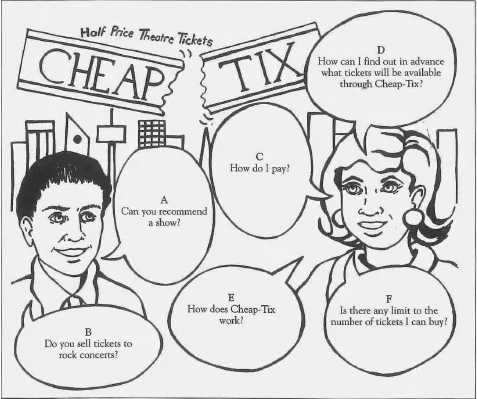
Example: Answer A
Cheap – Tix staff are theatre lovers too. They see almost every show in town and can give advice on a show to suit your requirements. Tourist maps and brochures are also available at the Cheap – Tix booth.
1 In the word ‘cash’. Credit cards, cheques or travellers’ cheques are not accepted.
2 Tickets available to shows all over town are collected each morning from theatre box offices and ticket agencies and are offered for sale from 10 a.m at the Cheap – Tix booth in the city mall.
3 Cheap – Tix does not offer advance bookings or sales information. Customers must come in person to the Cheap – Tix booth on the day of the performance. Shows available are listed on the bulletin boards. There is no direct telephone link with the Cheap – Tix sales booth.
4 Anyone who goes to the Cheap – Tix booth can buy whatever tickets are available, making the service ideal for groups.
5 Cheap – Tix will sell tickets to any show it can get. This includes rock concerts and musicals.
Questions 6-9
Read the following advice about preventing tetanus. Do the statements that follow agree with the information given in the text?
In the boxes 6-9 on your answer sheet write:
TRUE if the statement is true
FALSE if the statement is false
NOT GIVEN if the information is not given in the passage
Tetanus Injection
All wounds carry a risk of infection. Dirty wounds, in particular, carry a risk of tetanus infection. The bacteria that cause tetanus are present in the soil and in animal faces. If they get into a wound they multiply very rapidly. Tetanus is a serious, potentially fatal condition. It can cause muscle spasms and leads to lockjaw. It can be prevented by a tetanus injection.
Have regular tetanus injections. A booster is recommended every five years. Always check that you are covered after any injury where the skin is broken.
Be particularly sure that children have regular tetanus injections. They are more prone to falling over and getting dirt in a wound than adults.
6 Tetanus can kill you.
7 Household pets should be given tetanus injections.
8 A single tetanus injection provides permanent protection.
9 Children have a higher risk than adults of getting tetanus.
Questions 10-12
Read the following advertisements and answer the questions. Choose the appropriate letters A-D and write them in boxes 10-12 on your answer sheet.
Visiting Melbourne
Pick up a copy of This Week in Melbourne It’s full of up-to-the-minute information on:
- sightseeing
- shopping
- antiques and galleries
- wineries
- entertainment
- dining out and accommodation
Copies are available from the Victorian Government Travel Centre, 10 Jones Street, Sydney.
10 What is being advertised?
A a hotel
B guided tour
C a shopping mall
D a tourist magazine
Photocopy cards
The college has introduced a new card system for obtaining photocopies called COPY CARD which replaces the old system. The most important feature of the new card system is card reusability. When you have used up all the credits on your card, you simply recharge it.
To get your COPY CARD:
- go to the Students’ Union office. When you have used the current credit in the card, simply return the card along with a cash payment for the amount of credit you want to be added, or
- There is a card dispenser in the library.
There is a unit cost of $1.50 per card.
If you have any further enquiries you can contact the Technical Officer at the Students’ Union.
Questions 11 and 12:
11 The old cards ………………….
A were cheaper
B were not reliable
C could not be used again
D cost $1.50
12 When your card has run out of credits ……………….
A you can decide how many more credits you want to buy
B you have to pay $1.50
C you should contact the Technical Officer
D you will have to buy a new one
Also check :
- IELTS Reading
- Tips to Improve IELTS Reading Skills
- IELTS Reading Practice Test
- True False Not Given IELTS Reading
- IELTS Reading recent actual test
- IELTS Academic Reading test papers with answers pdf
- IELTS General reading practice test
- IELTS General Training
Section 2
You have to spend not more than 20 mins on questions 13 – 27
Look at the article Club for Students below. Which club would you contact for each of the requirements below? Write the appropriate letter A-G in boxes 15-21 on your answer sheet. You may use each letter more than once.
The first one has been done for you as an example.
Example – You wish to go swimming at 7 am every morning. Answer – G
13 You would like to take Spanish classes.
14 You want to join a club that has international branches.
15 You would like an opportunity to speak in public.
16 You would like to take part in amateur theatrical productions.
17 You want to visit some famous sites with a group of other students.
18 You are interested in finding out about part-time work.
19 You want to meet some English people who have started their careers.
Clubs For Students
There are a variety of Clubs which provide social and cultural activities for those wishing to meet others with similar interests from the same or from different national backgrounds.
A. Commonwealth Trust
Organized discussion meetings, learned talks, cultural events excursions to places of interest and invitations to major British diary events Open to overseas visitors and students.
B. Charles Peguy Centre
French youth centre providing advice, support and information to young Europeans aged between 18-30. Facilities include an information and advice service regarding education, work placement and general welfare rights. Moreover, the centre holds a database of jobs, accommodation and au pair placements specifically in London. Members may use a fax machine, a copier and computers for CVs.
Hours Monday: 14.00-17.00
Tuesday-Friday: 10.00-17.00
Membership: £35 per year, plus £5 per month.
C. Kensington Committee of Friendship for Overseas Students
KCOF is a society for young people from all countries. Each month there are some 40 parties, discos, visits to theatres, concerts, walks and other gatherings where you will be able to meet lots of people. A new programme is sent each month directly to members (£5 to join in October, less later in the year). Events are free or at low often reduced prices. Office open 10.30-17.30 weekdays only.
D. Royal Overseas League
Open 365 days per year, this is a club with facilities in London and Edinburgh with restaurants, bars and accommodation. There are branches around the world and 57 reciprocal clubs worldwide. Quarterly magazine, literary lectures, an annual music and art competitions, and summer and winter programme of events for members. Membership fees overseas students aged 17-24 £47 per year + initial joining fee £23.50; others £70 per year + initial joining fee £35 (half price after July). Further information from the Membership Secretary.
E. YMCA London Central
Facilities include photography, art, drama, pottery, language courses, badminton, squash, exercise to music, circuit training, sports clinic, fitness testing and other activities. Hours weekdays 07.00-22.30, weekends 10.00-21.00. Membership fees: aged 16-17 £25 per year plus attendance charge of £1 30 per visit; aged 18-19 £213 per year; aged 20-25 £366 per year
F. London Inter-Varsity Club (IVC)
IVC is an activity and social club with a varied range of events, from cycling and drama to windsurfing and yoga. Most members are young English professionals, but overseas visitors are welcome. The club arranges restaurant meals, dancing and parties, weekends away around Britain, plus a weekly club night in a Covent Garden bar. There are usually over 25 different events every week run by IVG members for IVC members. To find out more, telephone the club or write (Freepost) to the office.
G. Central Club
Provides accommodation and club facilities. No membership fee. Coffee shop open for all meals swimming pool (open 06.00), multi-gym, hairdressing salon.
Questions 20-27
Read the article on International Students House and look at the statements below. In boxes 20-27 on your answer sheet write
True – If the statement is true
False – If the statement is false
Not Given – If the information is not given in the passage
Example: The club is for overseas students only, Answer – False
20 The club has long-term dormitory accommodation.
21 Membership must be renewed monthly.
22 The club provides subsidised restaurant meals.
23 The club is open to non-members on Tuesday evenings.
24 STA Travel helps finance the Students Adviser.
25 The services of the Students Adviser are free to all club members.
26 You must make an appointment to see the Students Adviser.
27 There will be a surcharge for accommodation over the Christmas period.
International Students House
International Students House is a unique club and accommodation centre for British and overseas students in London. It is located in the heart of London’s West End and is close to all public transport facilities.
Accommodations
- comfortable accommodation for up to 450 people in single, twin, 3/4 bedded and multi-bedded rooms
- 44 self-contained flats for married students and families
- long and short stays welcome
Membership
Club membership is open to all full-time students, professional trainees, student nurses and au pairs. Membership costs are kept to an absolute minimum to enable the widest possible access. You can join for as little as one month and for up to one year at a time. Membership entitles you to use the various facilities of the House. It has:
- restaurants
- student bars and coffee shop
- study rooms
- clubs and societies
- aerobics and fitness training
- discos, dance, jazz and cinema
- travel and excursions and much more! The best way to check out all we have on offer is to drop in any Tuesday evening between 7.15 pm and 8.30 pm for Open House in the Club Room. This is an opportunity for you to meet the staff and other club members, enjoy a free cup of coffee and find out all about what’s going on. You can take advantage of special membership offers. (Useful tip: bring along 3 passport size photographs if you wish to take out membership.)
Advice Service
Thanks to the support of STA Travel and in association with LCOS (the London Conference on Overseas Students) International Students House now provides the service of an International Students Adviser. This new welfare service is open to all students at London’s bonafide academic institutions. It aims to provide welfare support to help students overcome any personal or practical difficulties they may be experiencing whilst studying in Britain. One of the key features of the Advice Service is that the Adviser can be seen during the evenings until about 8 pm, Monday to Thursday.
Christmas & New Years
Unable to get home for Christmas? How about joining in the fun at the International Students House! Check out our special programme of activity taking place over the Christmas period. Even come and stay – the House will be offering reduced accommodation rates for students wishing to spend a few days in London over Christmas. We’ll also have an exciting New Year’s Eve party so come and join us and ring in the new year in the spirit of internationalism.
Section 3
Read the following passage and answer questions 28-41
The Discovery of Uranus
Someone once put forward an attractive though unlikely theory. Throughout the Earth’s annual revolution around the sun, there is one point of space always hidden from our eyes. This point is the opposite part of the Earth’s orbit, which is always hidden by the sun. Could there be another planet there, essentially similar to our own, but always invisible?
If a space probe today sent back evidence that such a world existed it would cause not much more sensation than Sir William Herschel’s discovery of a new planet, Uranus, in 1781. Herschel was an extraordinary man — no other astronomer has ever covered so vast a field of work — and his career deserves study. He was born in Hanover in Germany in 1738, left the German army in 1757, and arrived in England the same year with no money but quite exceptional music ability. He played the violin and oboe and at one time was organist in the Octagon Chapel in the city of Bath. Herschel’s was an active mind, and deep inside he was conscious that music was not his destiny; he, therefore, read widely in science and the arts, but not until 1772 did he come across a book on astronomy. He was then 34, middle-aged by the standards of the time, but without hesitation he embarked on his new career, financing it by his professional work as a musician. He spent years mastering the art of telescope construction, and even by present-day standards, his instruments are comparable with the best.
The serious observation began in 1774. He set himself the astonishing task of ‘reviewing the heavens’ in other words, pointing his telescope to every accessible part of the sky and recording what he saw. The first review was made in 1775; the second, and most momentous, in 1780-81. It was during the latter part of this that he discovered Uranus. Afterwards, supported by the royal grant in recognition of his work, he was able to devote himself entirely to astronomy. His final achievements spread from the sun and moon to remote galaxies (of which he discovered hundreds), and papers flooded from his pen until his death in 1822. Among these, there was one sent to the Royal Society in 1781, entitled An Account of a Comet. In his own words:
On Tuesday the 13th of March, between ten and eleven in the evening, while I was examining the small stars in the neighbourhood of H Geminorum, I perceived one that appeared visibly larger than the rest; being struck with its uncommon magnitude, I compared it to H Geminorum and the small star in the quartile between Auriga and Gemini, and finding it to be much larger than either of them, suspected it to be a comet.
Herschel’s care was the hallmark of a great observer; he was not prepared to jump any conclusions. Also, to be fair, the discovery of a new planet was the last thought in anybody’s mind. But further observation by other astronomers besides Herschel revealed two curious facts. For the comet, it showed a remarkably sharp disc; furthermore, it was moving so slowly that it was thought to be a great distance from the sun, and comets are only normally visible in the immediate vicinity of the sun. As its orbit came to be worked out the truth dawned that it was a new planet far beyond Saturn’s realm and that the ‘reviewer of the heavens’ had stumbled across an unprecedented prize. Herschel wanted to call it Georgian sidus (Star of George) in honour of his royal patron King George III of Great Britain. The planet was later for a time called Herschel in honour of its discoverer. The name Uranus, which was first proposed by the German astronomer Johann Elert Bode, was in use by the late 19th century.
Uranus is a giant in construction, but not so much in size; its diameter compares unfavourably with that of Jupiter and Saturn, though on the terrestrial scale it is still colossal. Uranus’s atmosphere consists largely of hydrogen and helium, with a trace of methane. Through a telescope, the planet appears as a small bluish-green disc with a faint green periphery. In 1977, while recording the occultation 1 of a star behind the planet, the American astronomer James L. Elliot discovered the presence of five rings encircling the equator of Uranus. Four more rings were discovered in January 1986 during the exploratory flight of Voyager 2 2, In addition to its rings, Uranus has 15 satellites (‘moons’), the last 10 discovered by Voyager 2 on the same flight; all revolve about its equator and move with the planet in an east-west direction. The two largest moons, Titania and Oberon, were discovered by Herschel in 1787. The next two, Umbriel and Ariel, were found in 1851 by the British astronomer William Lassell. Miranda, thought before 1986 to be the innermost moon, was discovered in 1948 by the American astronomer Gerard Peter Kuiper.
Questions 28-32
Complete the table below. Write a date for each answer.
Write your answers in boxes 28-32 on your answer sheet.
| Event | Date |
| Example: William Herschel was born | Answer: 1738 |
| Herschel began investigating astronomy | 28___ |
| Discover of the planet Uranus | 29___ |
| Discovery of the moons Titania and Oberon | 30___ |
| The first discovery of Uranus’s rings | 31___ |
| Discovery of last 10 moons of Uranus | 32___ |
Questions 33-37
Do the following statements reflect the claims of the writer of the Reading Passage?
In boxes 33-37 on your answer sheet write
Yes – If the statement reflects the claims of the writer
No – If the statement contradicts the writer
Not Given – If it’s impossible to say what the writer feels about it
Example: Herschel was multitalented. Answer – Yes
33 It is improbable that there is a planet hidden behind the sun.
34 Herschel knew immediately that he had found a new planet.
35 Herschel collaborated with other astronomers of his time.
36 Herschel’s newly-discovered object was considered to be too far from the sun to be a comet.
37 Herschel’s discovery was the most important find of the last three hundred years.
Questions 38 – 41
Complete each of the following statements and write your answers in the answer sheet.
The suggested names of the new planet started with ___ 37 ___, then ___ 38 ___, before finally settling on Uranus. The first five rings around Uranus were discovered by ___ 39 ___ From 1948 until 1986, the moon ___ 40 ___ was believed to be the moon closest to the surface of Uranus.
Answer Key
Unlock Answers
Section 1
| 1 | C |
| 2 | E |
| 3 | D |
| 4 | F |
| 5 | B |
| 6 | True |
| 7 | Not Given |
| 8 | False |
| 9 | True |
| 10 | D |
| 11 | C |
| 12 | A |
Section 2
| 13 | E |
| 14 | D |
| 15 | A |
| 16 | E |
| 17 | A |
| 18 | B |
| 19 | False |
| 20 | True |
| 21 | False |
| 22 | NG |
| 23 | True |
| 24 | True |
| 25 | NG |
| 26 | NG |
| 27 | False |
Section 3
| 28 | 1772 |
| 29 | 1781 |
| 30 | 1787 |
| 31 | 1977 |
| 32 | 1986 |
| 33 | Yes |
| 34 | No |
| 35 | Not Given |
| 36 | Yes |
| 37 | Not Given |
| 38 | Georgium sidus |
| 39 | Herschel |
| 40 | James L. Elliott |
| 41 | Miranda |
Start Preparing for IELTS: Get Your 10-Day Study Plan Today!
General Reading Practice Tests
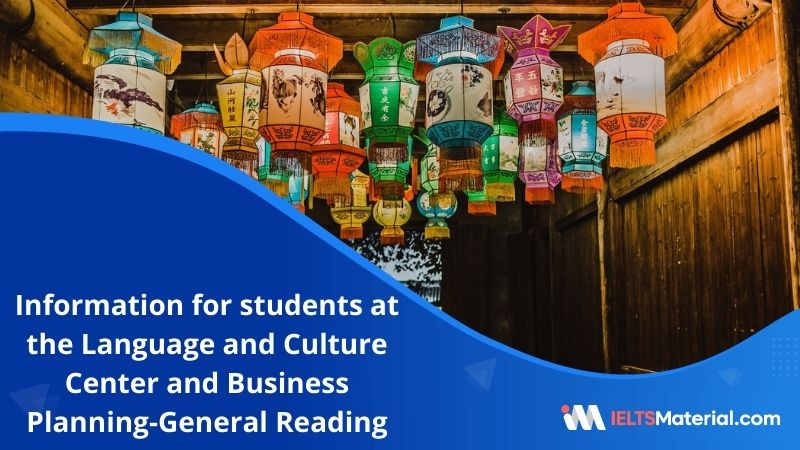
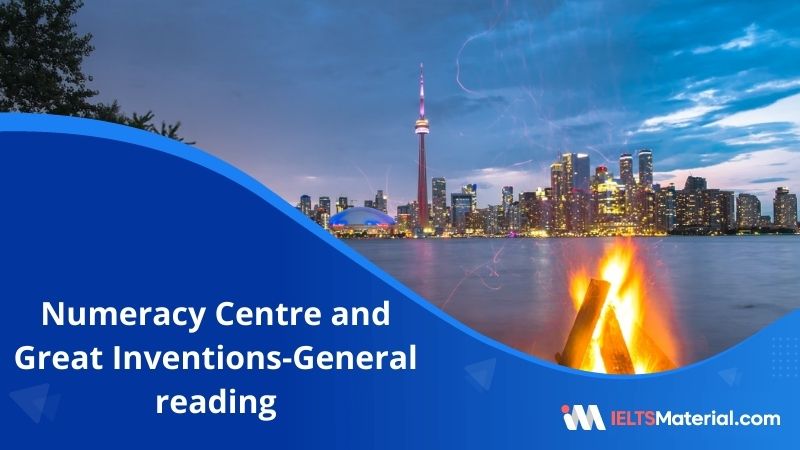

Recent Articles

Kasturika Samanta

Janice Thompson

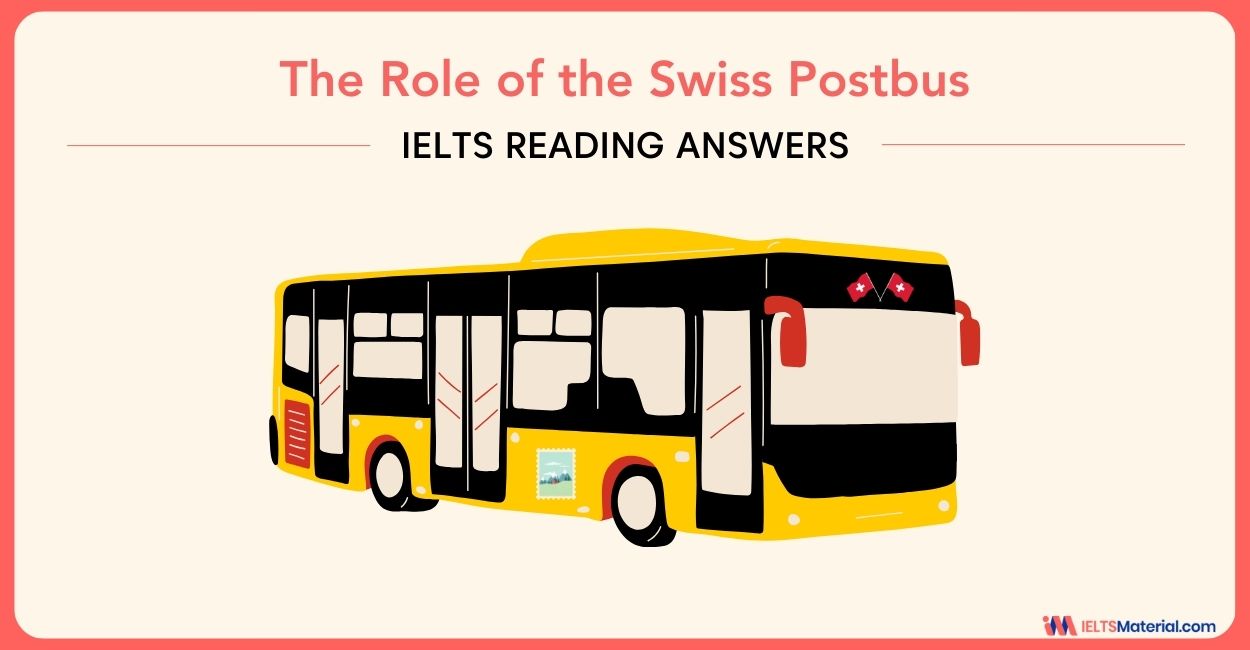
Kasturika Samanta
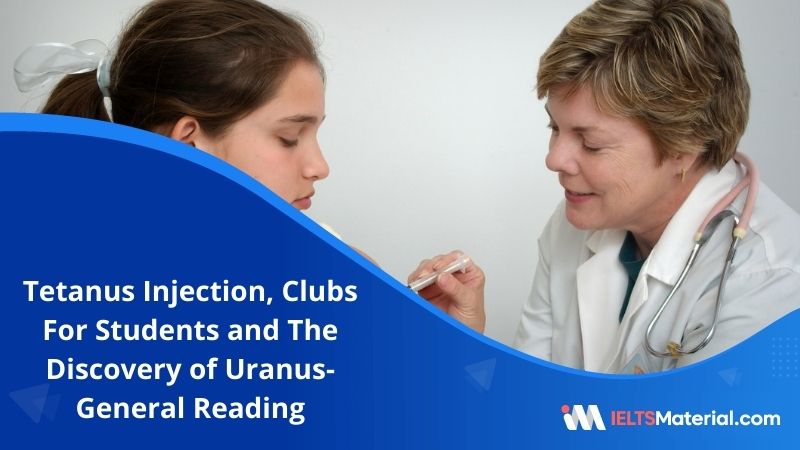
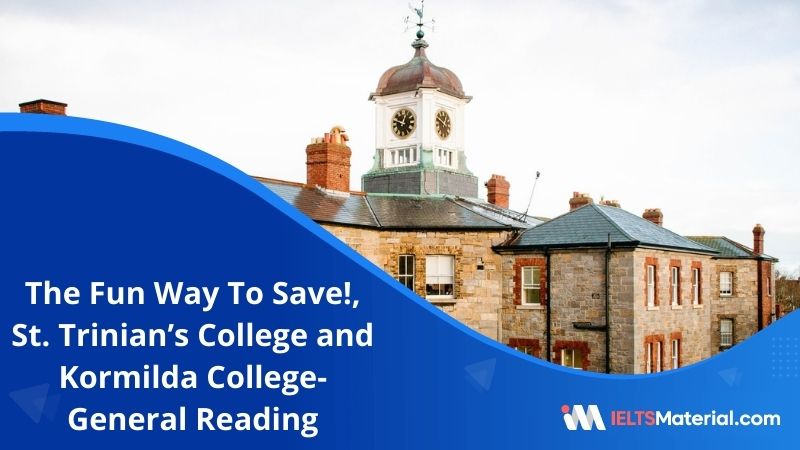


Post your Comments